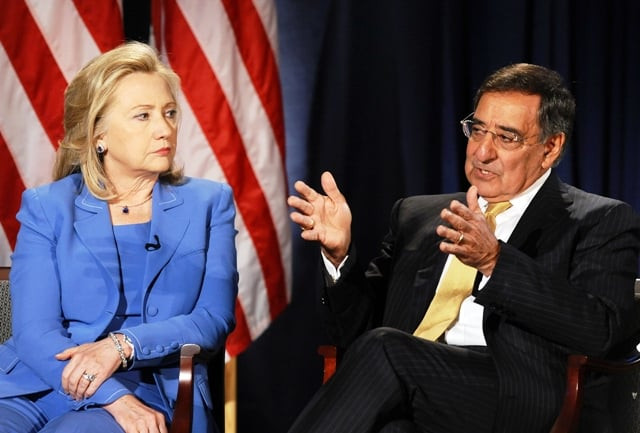Pakistan’s relationship with America
The two countries, unfortunately, are challenging each other to make the final decision and cut the umbilical cord.

Mr Panetta outlined the “differences” briefly: Pakistan has links with the Haqqani network, which he said was continuing to carry out cross-border attacks on US forces in Afghanistan and that it has “a relationship with the Lashkar-e-Taiba that goes into India and threatens attacks there”. He was clear in his mind that the US was compelled to maintain a relationship it did not relish because of the compulsions of war against terrorism in which Pakistan played a crucial role. Ms Clinton, however, conveyed the impression that though ‘transactional’, the Pakistan-US equation was not under sufferance and was there to stay. Both did not say what Pakistan’s interests were, but it would be fair to assume that a large portion relates to concerns about India. Also, of late, they would be concerned with the issue of drones in that Pakistan wants a complete end to this strategy used by the Americans. Panetta was more matter of fact. He included Pakistan’s status of a nuclear state as one of the factors that compelled the US to remain soft on Pakistan. It would not be out of place to presume that some observers will read this as a precursor to a coming rupture in ties between the two states.
The two countries, unfortunately, are challenging each other to make the final decision and cut the umbilical cord. The US has not exactly followed Ms Clinton’s policy of restraint. It has suspended the strategic dialogue with Pakistan, withheld the $800 million in military assistance to Pakistan and arrested a Kashmiri activist that Pakistan funded, a revelation that surely must not have been new. Meanwhile, ‘leaks’ in the American press say that Pakistan allowed the Chinese a peek into the stealth technology of a US helicopter that crashed in Pakistan. (Both Pakistan and China have strongly denied this.)
It has to be said that Pakistan has acted out of anger rather than policy after the killing of Osama bin Laden, although the CIA-ISI spat was on since 2010 when a report prepared at an American university alleged that the agency was in effect funding the Taliban to kill American soldiers in Afghanistan. The arrest of Raymond Davis in Pakistan was a nadir in this relationship. Nato supplies, already subject to colossal corruption, have been vandalised in Pakistan and American officials are being harassed in an unprecedented drive by the Pakistani police, which must be happening only with orders from elsewhere.
No matter what Ms Clinton says, the Pakistan-US relationship remains on a rocky path. Peoples on both sides suffer from paranoid emotions; and Pakistan could be standing on the precipice of a desperate decision to save its India policy at the cost of losing America’s support. Out of the two, most of the negative fallout will be on Pakistan. And that is precisely why it must let go off the anger over the Abbottabad raid and formulate its ties with America on the basis of pragmatism and reality.
Published in The Express Tribune, August 18th, 2011.



















COMMENTS
Comments are moderated and generally will be posted if they are on-topic and not abusive.
For more information, please see our Comments FAQ